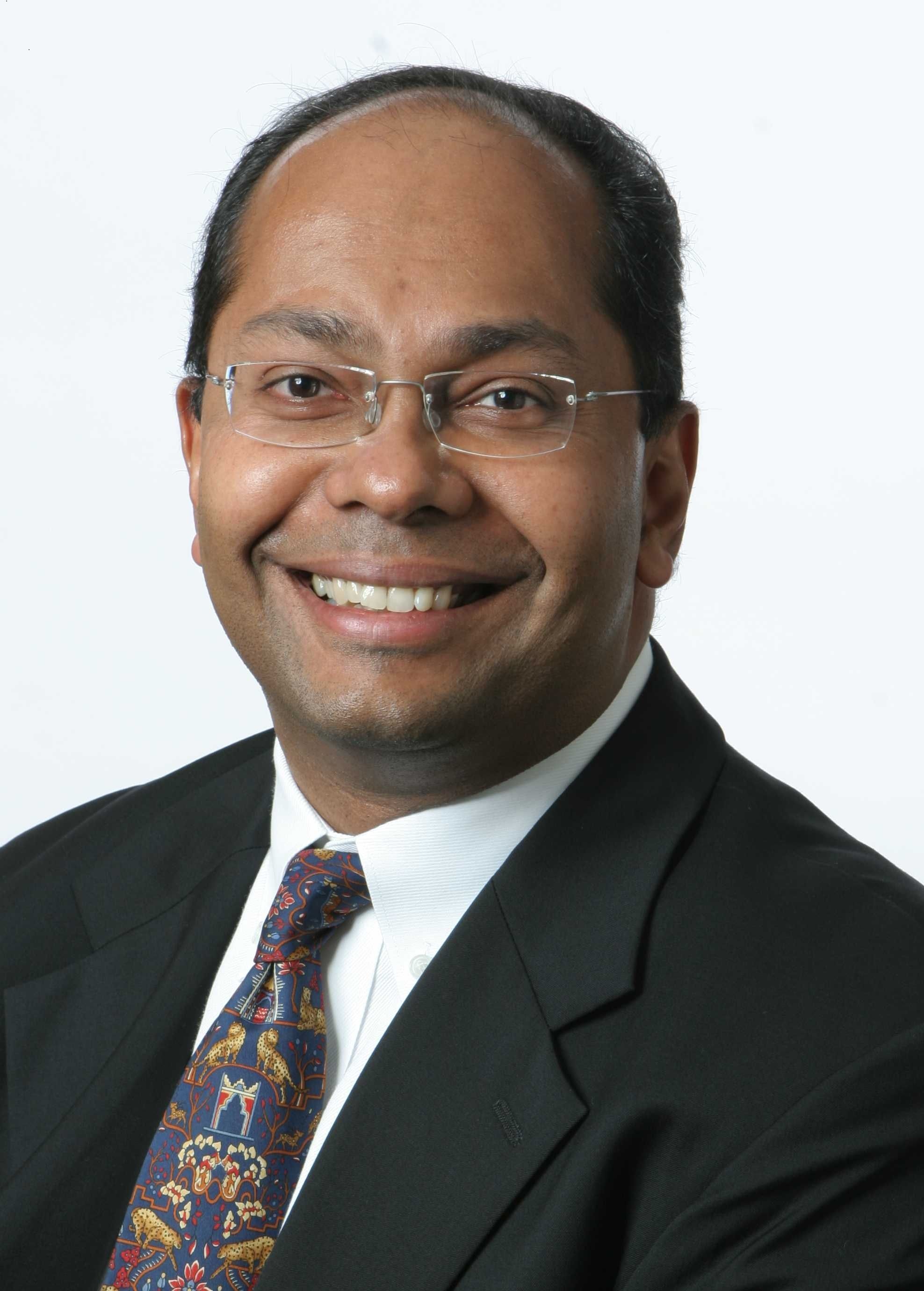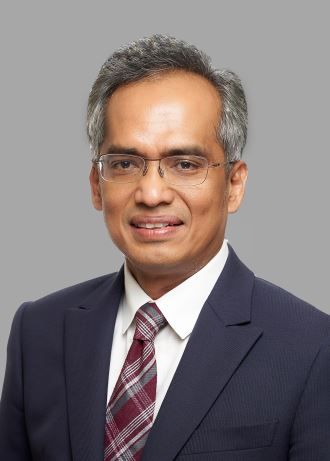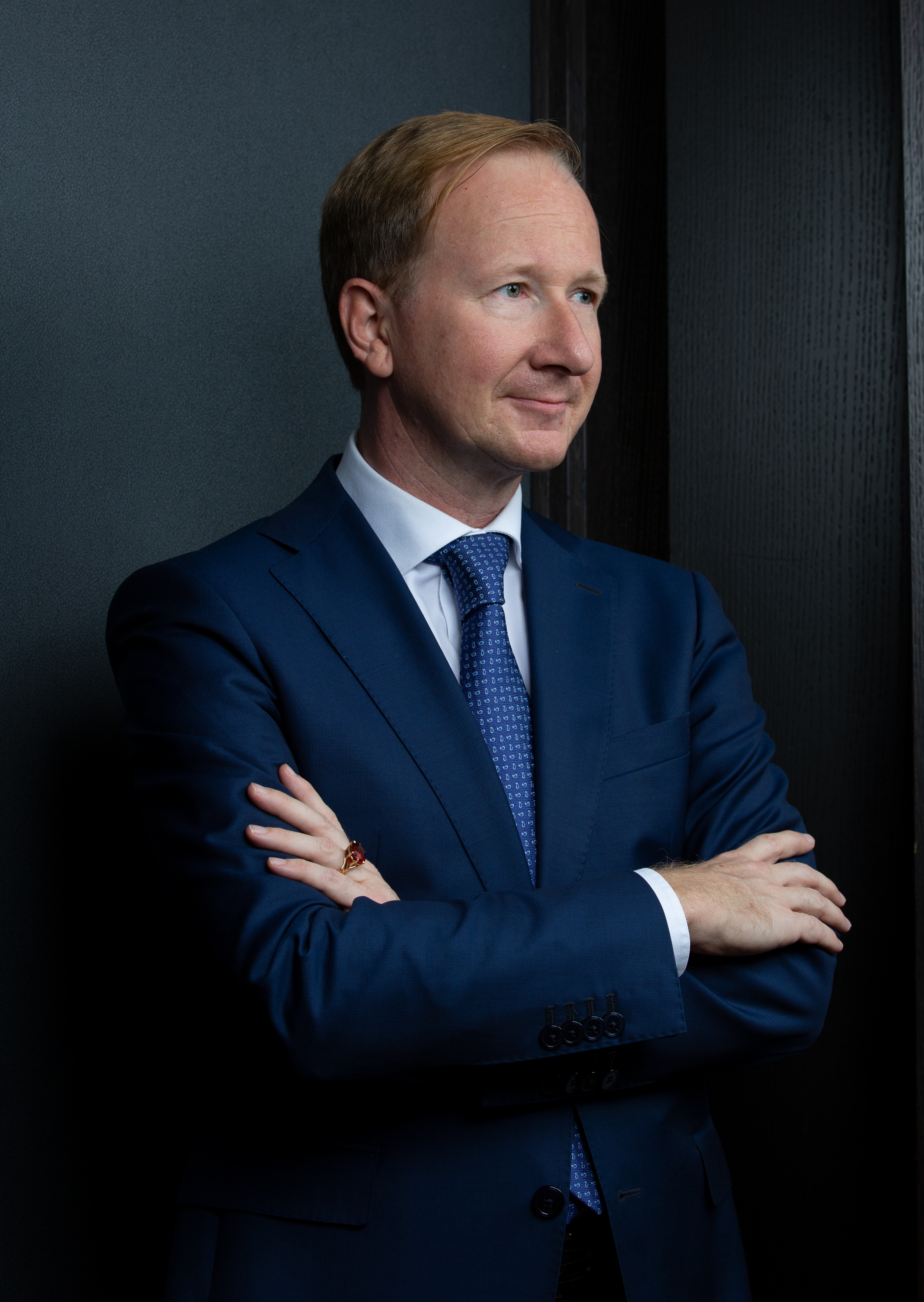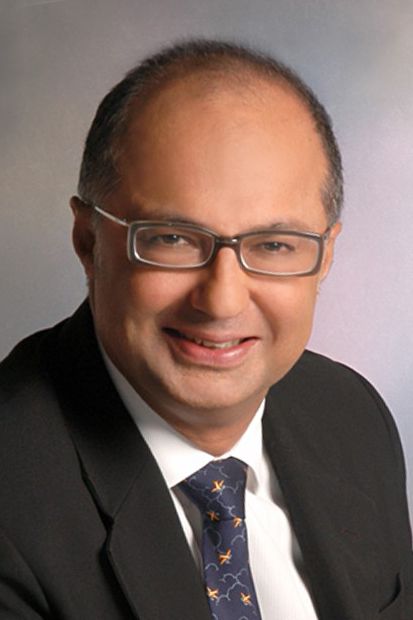In the Hot Seat
25 September 2020
 Questions:
Questions:
Describe yourself in (3) three words.
I found it difficult to find any words so I turned to my regular critics, my 11 year old daughter and 8 year old son and they came up with – funny, smart and hardworking/strict!
How did you first involved in arbitration work?
I started off relatively early in my practice to undertake arbitration work. I did so after attending the SIArb Entry Level Course way back in 1997 and found the subject both interesting and engaging. That ignited a keen interest for the subject and the field and I have not looked back since.
Did you notice a trend in client’s preference for Arbitration over Litigation as a form for Dispute Resolution?
Initially, when I started undertaking arbitration work, there was some resistance and concern amongst clients over referring disputes to arbitration as many were not familiar with the process and were uncomfortable with having disputes resolved outside the court system. That has changed and many clients now prefer arbitration to court litigation for a number of reasons.
What is the most memorable arbitration or arbitration-related matter that you were involved in, and why?
It would have to be an arbitration I acted in which was heard in Tokyo that involved my Indonesian clients and a Japanese multinational. In the midst of the arbitration proceedings, an application was made to the Japanese courts for evidence to be taken from a Japanese witness. It was the first time such an application had been made in the Japanese courts and the evidence elicited had a significant effect on the outcome of the arbitration
What advice do you have for young Arbitration Practitioners?
To keep at it and gain as much practical experience as possible. Undertaking the diploma course on International Arbitration run either by the CIArb or the NUS would be useful to get a good grounding on arbitration practice and law. Getting on the panels of arbitral institutions should be on the radar and perhaps a good place to start would be the panel of the Law Society Arbitration Scheme.
What challenges will Arbitrators face in the coming years?
The COVID pandemic has made in-person hearings difficult. Whilst hearings can and have gone ahead on virtual platforms, there is a distinct possibility that one side may contend that they were unable to present their case fully or effectively on a virtual platform. This may result in an increase in challenges to arbitral awards. The restrictions on travel may also adversely affect the likelihood of appointments, whether as counsel or arbitrator, in international arbitrations.
With the establishment of 5 International Mediation Centres and introduction of SIAC-SMC, Arb-Med-Arb Protocol, do you see having a larger role to play in assisting parties to resolve their disputes?
Mediation, as an alternative dispute resolution mechanism, has gained ground over the years and with the coming into effect of the Singapore Convention on Mediation, is likely to play a very significant role in the years ahead. Arbitration practitioners, as a result of the Arb-Med-Arb procedures that have been adopted by many arbitral institutions, will be increasingly involved in mediations. As such it will be critical for the arbitration practitioner to develop and hone his or her skill in mediation advocacy and in conducting mediations.
Who is the person who had the greatest impact/influence in your career?
Two persons stand out. Mr Chelva Rajah SC for his wit, wisdom and grace as well as his ever-ready willingness to help fellow practitioners. Justice Desmond Derrington of the Supreme Court of Queensland for his learning, compassion, wisdom and mentorship.
If you were not in your current profession, what profession would you be in?
Probably a failed writer and poet or an ineffective priest.
What is your quality pleasure?
Wine, reading and diving, not necessarily in that order or sequence.
What is the one talent which not many knows you have?
A terrible piano player. That’s why it’s a well-kept secret.
Fill in the blank “Arbitration is to Dispute Resolution as:
“Salt is to Food"
14 July 2020

Sapna Jhangiani QC specialises in international arbitration, and is called to both the English Bar and the Singapore Bar. She practised in London, New York and Dubai, before commencing practice in Singapore in 2011, where she is a Partner at Clyde & Co Clasis Singapore.
Sapna has managed cases spanning a number of industries under local and international sets of arbitration rules, including those of the ICC, SIAC, LCIA, SCMA, DIAC, DIFC-LCIA, AIAC, LMAA, HKIAC, and the UNCITRAL Rules. She has represented clients in arbitrations seated in Hong Kong, Singapore, Dubai, London, Paris and Mauritius, and governed by the laws of Singapore, London, PRC, Hong Kong, India, Myanmar, France, Malaysia, UAE, Korea and Mauritius, amongst others. Who's Who Legal has described her as "a top name for international arbitration in Singapore", and "a charming advocate, who is well respected within the arbitration fraternity."
Sapna is a Fellow of the Singapore Institute of Arbitrators, and a member of the SIAC Users' Council, the SCMA Procedure Committee, and the ICC Singapore Arbitration Group. In addition, she is a Fellow of the Chartered Institute of Arbitrators, and the Vice Chair of the Singapore branch. She holds an undergraduate degree from Oxford University and a diploma in international commercial arbitration from Queen Mary University London, in which she graduated with distinction.
Questions:
How would you describe yourself in three words?
Curious, tenacious, pragmatic
How did you first get involved in arbitration works?
I was a barrister litigating High Court matters in London, when my Canadian husband and I decided we wished to relocate outside the UK. I studied for a diploma in international commercial arbitration at Queen Mary University London and immediately found that international disputes was something I really enjoyed. In 2006, I commenced a role at my current firm in international arbitration in Dubai, and I have never looked back!
In the course of your work, do you notice a trend in clients preferring arbitration over litigation as a form of dispute resolution?
Absolutely. I have seen a significant increase in cross-border disputes generally in the last 15 years or so. For the majority of those disputes, parties prefer arbitration over litigation, and the proportion of cross-border disputes being resolved by arbitration continues to increase.
What is the most memorable arbitration or arbitration-related matter that you were involved in, and why?
That's a tough question! Probably an arbitration from 7 years ago in which I was Lead Counsel, representing the Claimant. The Respondent refused to recognise the jurisdiction of the arbitrator – even though he had found that he had jurisdiction – so the Respondent attended the proceedings and opened with the words "You are not an arbitrator in this case, as far as we're concerned - you're just a man in a nice suit!" Although the Tribunal was indeed wearing a nice suit, it was not the opening line I was expecting.
What advice do you have for a young fellow practitioner interested in arbitration work?
My personal view is that it is very helpful to have some grounding and experience in litigation, as this can act as a useful point of reference for your arbitration practice.
What are the challenges you think arbitration practitioners will face in the upcoming years?
I think we will need to grapple with the increased use of technology in arbitrations, both to save costs and also to reduce the impact on the environment. We are seeing a revolution in the employment of virtual hearings, due to the Covid-19 situation, and I think that the results of that revolution will be lasting.
What advice do you have for a young fellow practitioner interested in developing a career as an arbitrator?
Your first appointments as an arbitrator are likely to come from institutions so you need to attract their attention as being a very capable and safe pair of hands for a possible appointment. Aiming for excellence as a practitioner in whatever field you are in will stand you in good stead, as will communicating your knowledge and experience of arbitration practice and procedure. This could be through published articles and seminars – even if you are simply posing insightful questions at such seminars, rather than presenting at them! - or through appearing as Counsel, expert or tribunal secretary in a case administered by the institution.
Who is the person(s) who has had the greatest impact and/or influence on your career?
I have been blessed to have several fantastic mentors in my career who have encouraged me, influenced me, and believed in me. One of the most impactful has been my first pupilmaster at the English Bar, who is a brilliant, charismatic and tenacious lawyer, and now a dear friend. He is extremely successful but has never followed the rest of the pack, preferring to chart his own course and challenge the status quo. That takes real courage, which has always inspired me.
If you weren’t in your current profession, what profession would you be in?
I think I would have been a journalist, probably on television rather than in print.
What’s your guilty pleasure?
A glass of Barossa Valley Shiraz with some dark chocolate – I believe that's two pleasures!
What is one talent that not many people know you have?
Unfortunately my talents outside the law are somewhat limited, but I've been told that I'm not bad at karaoke!
Fill in the blank: "Arbitration is to dispute resolution as Apple is to innovation"
30 March 2020

How would you describe yourself in three words?
OCD. Alive. Grateful.
How did you first get involved in arbitration work?
When SIAC was born in 1991, the caretakers of court litigation battled a system bogged down by a serious logjam of older cases. It did not take long for arbitration to enjoy the imprimatur of disputants and their legal advisors. I took part in CIArb trainings to equip myself. It was a case of get on the bus or be left behind.
In the course of your work, do you notice a trend in clients preferring arbitration over litigation as a form of dispute resolution?
Definitely. Arbitration has become the darling of lawyers and disputants, in a trend that has continually arced upwards in the last two and a half decades.
What is the most memorable arbitration or arbitration related matter that you were involved in, and why?
An ongoing investor-state dispute where I sit as a party nominated arbitrator. The case is being heard in stages at the Peace Palace, The Hague and involves time-worn issues often encountered in ISDS. The landscape is littered with the evolution of the diametrically varying perspectives of practitioners and jurists across the globe on oft-encountered issues. The ad hoc (and frequently opaque) resolution of such issues by numerous separate tribunals (often in dramatically divergent ways) leads one to the inexorable conclusion that perhaps the time has come for an international investment court.
What advice do you have for a young fellow practitioner interested in arbitration work?
Be persistent and dogged.
Pursue learning relentlessly.
Show up at arbitration related events.
Most of all, believe in yourself.
What are the challenges you think arbitration practitioners will face in the upcoming years?
Serious competition from international courts such as the Singapore International Commercial Court and other forms of ADR. Arbitration users such as in-house counsel will also require much more pro-active and innovative case management approaches from counsel and arbitrators alike.
With the establishment of the Singapore International Mediation Centre and the introduction of the SIAC-SIMCArb-Med-Arb Protocol, do you see mediation as now having a bigger role to play in assisting parties to resolve their disputes?
This is self evident. Arbitrators need to be armed with mediation skills. Common law lawyers need to overcome their understandable aversion to an arbitrator switching hats and acting as a mediator, and vice versa.
Who is the person(s) who has had the greatest impact and/or influence on your career?
Michael Hwang SC, my pupil master who blazed a trail in arbitration. CJ Sundaresh Menon, VK Rajah SC, JA Steven Chong and Minister Shanmugam have been tremendous mentors.
If you weren’t in your current profession, what profession would you be in?
A park ranger in a remote wilderness haven.
What’s your guilty pleasure?
A car with way more horsepower than rationality would require.
What is one talent that not many people know you have?
Having all the skills to run a provision shop. Was conscripted to assist my dad in his provision business from the age of 9. Grating coconuts, weighing/packing essentials such as flour and sugar, delivering newspapers (which mostly meant making effective escapes from the neighbourhood dogs) and similar pleasures.
Fill in the blank: “Arbitration is to dispute resolution as salt is to ___”
....tears!
16 December 2019
 In this issue of our newsletter, we are pleased to have a colleague from Austria, Mag. Ralph Kilches, share his views on the current situation of arbitration in Europe in an environment where arbitration in Asia is seeing growth, and also give some insight into what makes him tick.
In this issue of our newsletter, we are pleased to have a colleague from Austria, Mag. Ralph Kilches, share his views on the current situation of arbitration in Europe in an environment where arbitration in Asia is seeing growth, and also give some insight into what makes him tick.
You are the founder of the law firm Kilches Legal in Vienna, Austria. Could you please give a brief overview of your career and introduce your law firm?
I studied law and some semesters translation sciences (English/French) at the University of Graz. Beside my studies I worked as freelancer journalist for IDG Computer World (Vi-enna). After I completed my legal degree (one semester over minimum time) I had to spent a year at the court working as an assistant for the judge. During that year I wrote a commentary on European VAT Tax Law. In 1999, I joined Freshfields in Vienna as an as-sociate. I became author of a regular column in one of the leading tax journals (Fi-nanzjournal). I held seminars on E Commerce Law, Copyright Law and also Competition Law and I gave lectures on tax law issues at the Academy of Chartered Accountants. I changed from Freshfields to Schönherr in Vienna, another major law firm. Later I changed to a smaller lawfirm, passed the bar exam and founded finally in 2005 my own law firm. I operated in diverse cooperations. In 2006, I was lucky being the leading counsel of an ICC arbitration case in the electricity industry. This case ran over several years and we were quite successful. I joined diverse arbitration organisations and institutions, attended lectures seminars and courses on diverse international law topics (also Model Contract Course of AIPN); wrote several papers and continued to hold courses. In 2009, I got my first ap-pointment as Sole Arbitrator by ICC. Since 2010, I have participated in the VIS Moot as an arbitrator, since 2011 also in the VIS East. I was interested to see the interaction of civil law and common law in Asia. In 2011, I was appointed by ICC Austria as delegate to the Commission on Arbitration. From 2010 onwards, my law firm has been growing in num-bers of employees, cooperations, etc. In 2016, I passed the CIArb course (accelerated route) and became Fellow of CIArb. This further helped to grow my professional network. I serve clients with commodity trading disputes mainly in the steel industry and with bio food. Also, agency contracts, joint ventures and mining contracts are important areas of my work. 60% of my work is state court litigation from construction cases, real estate to labor law, intellectual property, competition law and also shareholder disputes. I deal rarely with criminal law cases. We have an established practice of administrative law, constitu-tional law and human rights. We have a core of permanent clients, cases covered by legal costs insurance and project consulting work involving hotels, banks, software development and mining.
What do you think about the current situation of arbitration in Europe and Asia? In contrast to Europe it seems that arbitration is currently booming in Asia. Recently the ICC launched an office in Singapore and the SIAC had a record of 452 new cases in 2017. Do you think this trend will continue?
In Europe you find a leading national arbitration institution in almost every country. Most popular is ICC arbitration, followed by LCIA and Switzerland as seat for arbitration general-ly. Hybrid dispute resolution involving mediation and arbitration becomes more and more popular. Third party funding brings a new growth to arbitration. The arbitration business is stable with a light growth despite of the fact that the internal state court and enforcement system in the EU has taken a relevant load of cases from arbitration. Specialist arbitration mechanisms exist in most fields of commodity trading, to name GAFTA and FOSFA first, but not to forget the numerous arbitration institutions at the local stock exchanges. This is a world of its own. Investment treaty arbitration in the EU is terminated by 6.12.2019 after all EU-member states (including UK) have terminated their BITs. In the trade contracts be-tween the EU and third countries an investment court (ISDS) has been established. We wait for the development of its practice. In Asia the local development and tradition to use arbitration is quite different and not so uniform. Dubai and Abu Dhabi have a long practice with a big arbitration community. Singapore assumes a leading role with international cas-es, followed by Hong Kong in my view. Mainland China has a very long tradition in arbitra-tion and several of the numerous arbitration centers focus also on foreign related disputes. However, the Chinese civil law and also the CISG jurisprudence p.ex. of CIETAC might not be so different from European law systems but the mistrust choosing state courts or arbitration institutions “of the other party” is a major hurdle. I wonder why no institution of-fers certificates combining Chinese and European business and legal culture for arbitra-tors. Singapore as a reliable hub for arbitration will grow in the future. Singapore is well known for its legal culture (quality and anti-corruption) and as a neutral place. Hong Kong has more opportunities because the investment transaction volume going through Hong Kong is enormous. But the political situation is not easy. An effective, independent dispute resolution system based on arbitration is crucial for the economy and vice versa. Other arbitration hubs like South Korea are rising. But similar as in Europe, some local institutions will have an international focus but will not be regarded as a truly international arbitration center. Malaysia is an example how much can be done successfully within a short time; construction adjudication is extremely successful in Malaysia at the AIAC (the former KLRCA). Other countries support arbitration recently like Thailand p.ex. Thailand is very active in the UNCITRAL-Commission, too. Japan’s Ministry of Justice has been taking new measures to make arbitration in Japan more popular and international. Singapore has a leading role and can attract even more international cases.
The Chinese Belt and Road Initiative (“BRI”) is currently a major topic in international arbi-tration. Do you believe that the BRI will lead to a major increase in arbitration cases?
The financing and construction background of the BRI will not produce a new hype of caseload in my opinion. I have not yet seen any evidence or studies, whether it is usual to agree to arbitration in those BRI-contracts. I have also not heard about specific BRI-related problems. The problems related to the BRI known in public are usually related to the host country. China has only been involved in a handful of international investment cases ; the same is true for Chinese companies. Europe and European parties (claimants) on the oth-er hand are the main “customer” of ICSID and investment arbitration. So my answer is “no”.
How do you assess the Chinese establishment of an international commercial court to re-solve disputes arising from its BRI?
A specialized court will only be used and trusted if a reliable permanent legal practice to-gether with transparence is offered. If such an institution shall be successful, its members and its legal culture must be seen as international and competent depending on the kind of dispute. The BRI includes infrastructure, construction, transport, financing and many more aspects. If the competence and reputation of the judges/arbitrators are not outstanding, the parties will use the state courts, which might be a reasonable choice.
How do you see Austria’s role with regard to the BRI in the future?
Austria by its location can be an important partner. BRI has arrived in Greece, Hungary and Eastern Europe in general. I think that the new trade agreement can bring new pro-jects and new business. However, we have to take into account that trade agreement ne-gotiations span over years. A fast conclusion of a China-EU trade agreement can be very helpful to avoid economic decline in Europe and also China. Austria is driven by a high rate of exports. Therefore, Austria has a clear task and a strong voice to support interna-tional trade. Austria should be seen as an effective hub to come to Europe. Innovation is generally very strong in Austria and the skills and the education level are high. However, there is always a need to improve in order to stay amonst the leading nations. The infra-structure in Austria is better in comparison to other EU countriesand more investments are carried out.
Considering the well-developed case law and the pro-arbitration stance of courts in Singa-pore, do you view Singapore as the ideal neutral seat for arbitrations between European and Asian parties (especially regarding BRI-related disputes)?
Yes, I recommend Singapore for arbitrations (SIAC and ICC).
The two most developed arbitration hubs in Asia are Singapore and Hong Kong. Both Sin-gapore and Hong Kong are common law jurisdictions. Consequently, arbitrations and arbi-trator panels in the region are dominated by lawyers with a common law background. Are more arbitrators with a civil law background required in Asia considering that (i) so many Asian countries (e.g. mainland China, Japan, Korea, Thailand, Vietnam etc) are civil law jurisdictions and (ii) an increasing number of BRI-related disputes will involve companies from countries with a civil law background?
Being a civil law lawyer, my arbitration practice from the beginning has always been linked to common law. Both successful arbitrators and successful counsels in the international field have to have specific knowledge of both systems. More importantly, as a counsel and arbitrator it helps you to have knowledge in the relevant industry. I handle construction cases before state courts and arbitral tribunals. In arbitrations, I frequently deal with com-mon law cases. If you have high developed analytic skills and like to work in different legal systems, arbitration is your profession. The VIS Moot helped me to understand the differ-ent methods to argue cases under civil law and common law. Knowing different legal sys-tems and cultures does not mean to produce a mixture of law in your submission or or in your arbitral award. The substantive law chosen by the parties has to be applied. However, the losing party must understand the process and the reasoning behind the decision.
The Arb-Med-Arb procedure is one of the latest trends in dispute resolution. What is your opinion about Arb-Med-Arb? For which types of cases is the Arb-Med-Arb procedure ap-pealing / recommended?
I doubt, that such agreements are workable generally. Med-Arb has created a lot of issues, especially if the clauses are not drafted diligently. The counsels must have similar experi-ence with such practices and enough personal influence on their parties. I see an oppor-tunity for more adjudication-arbitration, generally. The general trend are faster arbitration procedures and lower costs with high qualified adjudicators/arbitrators and counsels. The high costs come from the counsels’ part, who have also the main workload to bear. This is also true for state court procedures. State court procedure is more standardized which saves time and money. But state court procedures have their limits, also in capacity of availability of the judges and also the knowledge needed for different kinds of dispute. For specialized disputes adjudication and arbitration have a clear solution. The more the arbi-tration institutions are comparable with regard to rules and costs, the more it becomes im-portant that they promote the skills of the arbitrators who are available on their panels. A concern for arbitration is the quality control of the decision. UNCITRAL is currently also working on an appeal mechanism in ISDS; arbitration might profit from the results.
23 September 2019

In each issue of our newsletter, we interview an SIArb member to get their views on the alternative dispute resolution scene in Singapore, and to obtain some insight into what makes them tick.
In this issue, we interview Mr. Naresh Mahtani .
How would you describe yourself in three words?
Alive, Aware and Happy.
In the course of your work, do you notice a trend in clients preferring arbitration over litigation as a form of dispute resolution?
Yes, as there is more flexibility in procedures and timetables, and less formality in arbitrations.
What is the most memorable arbitration or arbitration related matter that you were involved in, and why?
They are all memorable, as I’ve learnt something new in every case, big or small. There is a construction case, early in my career (late 1980s into the 1990s), in which I was lead counsel in about 10 arbitrations spanning over 10 years and numerous forays to the court for all sorts of applications during that same time – all arising from one huge project! I was thrown into the deep end, as I had to face a number of much more senior experienced counsel representing the other parties almost every other month during that period, and there were very few construction and arbitration textbooks and very few Singapore court authorities on these subjects at that time to learn from. I barely had time to breathe or had any full weekends during those 10 years, but I learnt a lifetime of lessons!
What advice do you have for a young fellow practitioner interested in arbitration work?
Be “around” and “be visible” and keep learning all the time, such as by attending courses, seminars and conferences. And keep making new friends - not merely for the sake of “business development”, but genuinely to learn and share experiences, not only about law but practical matters and general knowledge about each other’s lives, career and passions.
What are the challenges you think arbitration practitioners will face in the upcoming years?
I sum it up in one phrase – i.e. Keeping focussed. The Internet is a good thing and in my view, one of the greatest inventions ever. However, there is information overload all the time, from the outside as well as internally in cases (eg via lengthy submissions etc). It’s important to keep focussed on what is essential and not drown in information. Also, amidst all the new information, technology and law firms vying for work, in my view, it is important to remember not to drain energy by competing with others, but instead to remember to just keep focussed on your strengths and interests, and perhaps focus on one or several areas of practice and dispute resolution (be it construction, shipping, commodities, oil & gas etc). And also keeping focussed on a balanced life – to leave the sea of information sometimes, and have sufficient rest and play.
Do you see other forms of dispute resolution having a bigger role to play in assisting parties to resolve their disputes?
Yes, definitely. Especially mediation, adjudication, neutral evaluation, expert determination and probability analysis. These will and, in my view, must continue as hand-maidens or even replace arbitrations in some areas, to reduce the cost, stress and time involved in litigation and arbitrations.
Who is the person(s) who has had the greatest impact and/or influence on your career?
Mr. Leo Fernando, my trainee mentor, when I started practice in 1982. He was a brave and unconventional criminal lawyer, a sort of towering father figure, with whom I practised criminal law in the first three years of my career. He trusted me entirely to do the getting up for cases, and that helped build my confidence as a professional. I learnt three things from him which have been relevant in all my years at work in other areas – being overprepared on details of a case, being courageous (before judges, tribunals and with lawyers on the other side) and having a sense of humour all the time.
If you weren’t in your current profession, what profession would you be in?
An investigative journalist, as I enjoy writing and am always curious. Also maybe a music journalist, as I enjoy music (especially alternative and progressive), attending concerts, collecting records, and listening!.
Latest Events
| 01 Jul 2024 SIArb Young Practitioners Network Mentoring Programme 2024 |
| 29 Aug 2024 - 29 Aug 2024 03:00PM - 07:00PM A Masterclass in Mediation Advocacy |
| 09 Oct 2024 - 09 Oct 2024 05:30PM - 07:15PM SIArb Lecture 2024 |
| 18 Oct 2024 - 19 Oct 2024 08:00AM - 12:00AM [IN-PERSON] SIArb Fellowship Assessment Course 2024 |
Site designed and maintained by Intellitrain Pte Ltd. Copyright © Singapore Institute of Arbitrators. All rights reserved.
